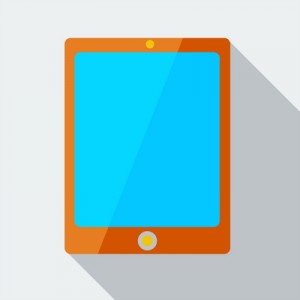In the early days of the Internet, there was only one device that enabled you to access it. That was the desktop computer.
Laptop computers have existed for as long as desktops have, but due to hardware limitations, they never really became a viable alternative.
In a technical sense, laptops are “mobile” devices, but still require the user to be seated to use. It hasn’t been until recently that we have seen truly mobile devices.
The Rise Of Smartphones
The first smartphone was invented in 1992, three years before the term “smartphone” even existed. It was IBM’s “Simon,” which was a cellphone with a monochrome LCD touchscreen and a stylus.
It was the first phone was able to send faxes, pages, and emails and it was even capable of running third party applications.
It came with built-in features that are so commonplace on today’s smartphones that most people take them for granted, such as a calendar, a notepad, a world clock, and a way to schedule appointments.
Simon didn’t sell well and its $899 price tag surely didn’t help move units either. For comparison, that’s the same purchasing power as $1607 in 2018.
It wasn’t until Apple’s iPhone in 2007 that the modern smartphone became mainstream. IBM was able to sell a total of 50,000 Simon smartphones over its entire lifetime, a number that is dwarfed by Apple’s 1.4 million iPhone sales in the first year of its existence.
The Aging Desktop
Hardware advancements in recent years have made smartphones powerful enough to perform all the basic functions that consumers were using desktops for in the early days of the Internet.
Smartphones are also priced lower than their desktop counterparts. Sure, if you compare the price of a brand new, top-of-the-line smartphone to a much more powerful desktop PC you may find that the desktop by itself is less expensive.
But for a desktop to function you also need peripherals like a monitor, keyboard, a mouse, speakers, etc. You also need a desk, a chair, a constant source of power, and, in most cases, an entire dedicated room. One could make the argument that you need to pay for a cell phone service to be able to use all the functions of a smartphone, but that isn’t much different than paying for an ISP.
Tablets
In 2010, Apple made yet another mobile device that would change the tech world forever: the tablet. Tablets are essentially large smartphones although they aren’t typically used to make phone calls.
Due to their size, they are capable of carrying stronger hardware than smartphones and they are easier to use as a practical tool in the workplace. There are even specialized “professional” tablets that are designed with detachable keyboards and Bluetooth mice that run the same operating systems that their desktop cousins do.
They weigh less than modern “lightweight” notebook laptops, and have the advantage of a touchscreen. Their functionality comes at a steep price though, and it’s one that will be felt by your wallet. Most “professional” laptops will cost even more than the most powerful desktops and laptops.
No Clear Winner
Each option has different pros and based on how you intend to use it. Although smartphones and tablets have been quickly taking over the home user market, almost all workplaces still use the desktop computer.
The price per performance ratio is still in the desktop’s favor. It could be a very long time before mobile devices gain the functionality of a desktop while matching their price.





 Cons of a Tablet Computer
Cons of a Tablet Computer